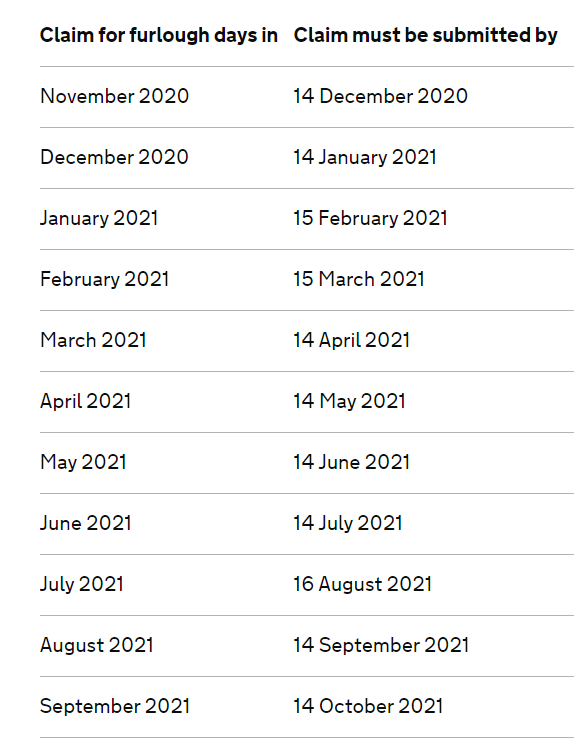Coronavirus Job Retention Scheme: A guide for employers

Posted: Thu 4th Nov 2021
The Coronavirus Job Retention Scheme (CJRS) provides grants to cover 60% of the wages of furloughed employees during the COVID-19 pandemic. This is a summary of the scheme with links to the official guidance.
UPDATE 04/11/21:
The Coronavirus Job Retention Scheme ended on 30 September 2021 and 14 October 2021 was the last date to make a claim for September.
However, HM Revenue & Customs (HMRC) has announced that for claim periods from 1 November 2020, it may accept late claims or amendments if you have:
Taken reasonable care to try and claim on time.
A reasonable excuse.
Claimed as soon as your reasonable excuse no longer applies.
If you believe you have a reasonable excuse, you need to contact HMRC using the helpline to check with an advisor if you can claim.
Examples of reasonable excuses provided by HMRC include:
your partner or another close relative died shortly before the claim deadline
you had an unexpected stay in hospital that prevented you from dealing with your claim
you had a serious or life-threatening illness, including COVID-19 related illnesses, which prevented you from making your claim (and no one else could claim for you)
a period of self-isolation prevented you from making your claim (and no one else could make the claim for you)
your computer or software failed just before or while you were preparing your online claim
service issues with HMRC online services prevented you from making your claim
a fire, flood or theft prevented you them from making your claim
postal delays that you could not have predicted prevented you from making your claim
delays related to a disability you have prevented you from making your claim
an HMRC error prevented you from making your claim
The original guidance for the scheme follows below:
Originally due to end in October 2020, CJRS was extended several times. The scheme finally closed on 30 September 2021 and employers have until 14 October to make a claim for September payments.
The government pays 60% of employees' usual wages for hours not worked up to a cap of £1,875. Employers must pay a minimum 20% of wages. They must also cover employer National Insurance Contributions (NICs) and pension contributions for the hours the employee does not work.

Claims for each month must be submitted within 14 calendar days after the month they relate to, unless it falls on a weekend when the deadline is the next week day. The deadlines are as follows:

If you made employees redundant, or they stopped working for you on or after 23 September 2020 you can re-employ them and put them on furlough. This applies as long as the employee was employed and on your PAYE payroll on or before 23 September 2020. This means a RTI submission notifying payment in respect of that employee to HMRC must have been made between 20 March and 23 September 2020.
You can make a claim here.
As before, directors of limited companies (including sole directors who are the sole employee) can use the scheme if they receive a salary through PAYE. The scheme does not cover dividends. While furloughed company directors can only carry out their statutory duties so "should not do work of a kind they would carry out in normal circumstances to generate commercial revenue or provides services to or on behalf of their company". Company directors can however use part time furloughing if they need to do work beyond their statutory duties.
How to make a Coronavirus Job Retention Scheme claim
Here the steps you need to take to use the scheme with links to the official government guidance:
Stay up-to-date with the latest coronavirus small business support and help
We're keeping you updated on the latest information on how to access all of the government's coronavirus small business support here. You can also find details and ask a question in the live chat on Enterprise Nation's coronavirus small business support hub.
If you have any questions or would like to share your experiences accessing the government's coronavirus business support, connect with Dan on Enterprise Nation.

